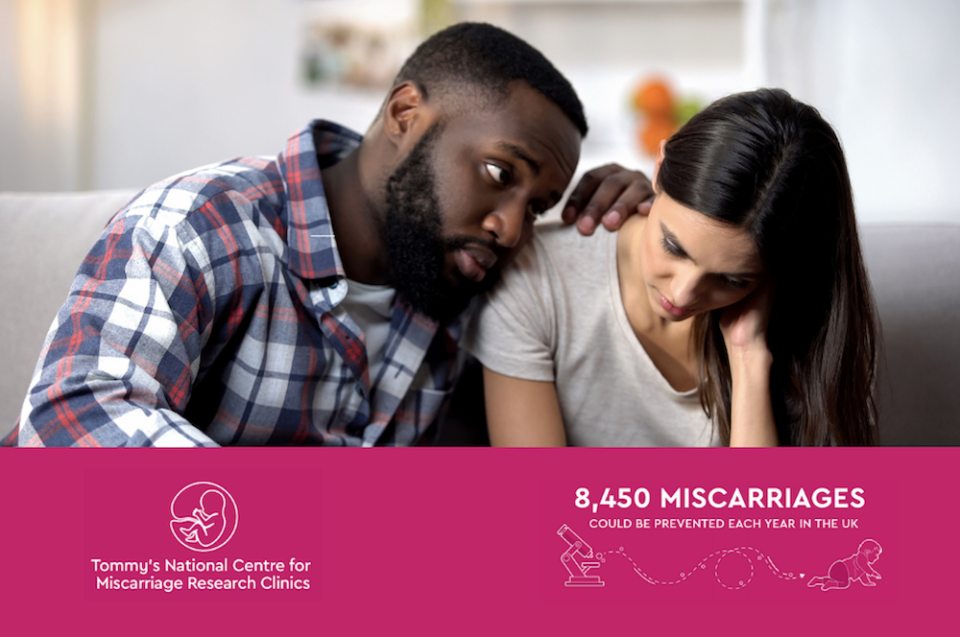
Miscarriage, or early pregnancy loss, is thought to be relatively common. However it is known that it may have a devastating impact on the mental wellbeing of a woman or birthing person. Though midwives are often more involved in later pregnancy knowledge of the effects of the loss is relevant, as well as supporting with appropriate information. Tina Watson, specialist nurse at Tommy’s, shares a new tool to help provide greater support and information about miscarriage.
______________________________________________________________________________________________________________________________________________________________________
In April 2021 the researchers for Tommy’s published Miscarriage matters. This was a 3-part research paper that was published in the Lancet (Quenby et al 2021). By combining all previously published research, the team laid bare the devastating impact of miscarriage and set out recommendations to improve treatment and care. For example, they found that miscarriage doubles the risk of depression and quadruples the risk of suicide.
Studies have found evidence of significant depression and anxiety in the first month following early pregnancy loss (Farren et al 2018). All the evidence found highlighted the fact that every woman or birthing person should have individualized care tailored to their individual needs.
Within the miscarriage matters research it was also found that black and minority women where not receiving the care for depression and anxiety in the first month following early pregnancy that they needed. 43% of Black women/birthing people have a higher risk of miscarriage when compared with White ethnicity (Quenby et al 2021). However, Prof Quenby, one of the key professors noticed that her clinics where predominantly white. Therefore, care given for miscarriage was not consistent and needed to be projected and made available for everyone, whatever culture, religion or colour.
So, based on these findings, our researchers developed a national miscarriage care package that will provide guidelines to health professionals across the UK, helping to standardise care. The care package calls for a graded approach, with online healthcare advice and screening after one miscarriage, care in a nurse or midwife-led clinic after two miscarriages, and care in a medical consultant-led clinic after three miscarriages. This approach balances the need for evidence-based management and supportive care, while targeting finite healthcare resources appropriately. Alongside the care package, the team are also developing commissioning guidelines and a patient’s charter, which will help women, birthing people and their partners know what they should be offered, empowering them to make sure they are receiving the right care. The team are now preparing to test the National Miscarriage Care Package at Birmingham Women’s and Children’s hospital.
While carrying out this work, our researchers also realised that better psychological screening and support is needed for women and birthing people who have suffered miscarriage. As a result, the team developed an evidence-based screening tool that can identify the women and birthing people who need to be referred to self-help resources or relevant specialist mental health services. This is now known as the miscarriage support tool.
What is the Miscarriage support tool?
The tool is an application that can be accessed from anywhere on a device that can access the internet. It uses an algorithm that has been developed by the University of Warwick and is based on data collected from the Tommy’s Net, a database created by Tommy’s national centre for miscarriage research. The variables that have been found, as part of this research, to make a difference to pregnancy outcomes are: Age, BMI (weight), PCOS (Polycystic Ovarian Syndrome), the number of previous miscarriages and the number of previous live births. By entering this personal and medical information, as well as their pregnancy history, the calculator uses this algorithm to calculate the chance of a successful pregnancy.
The tool then gives a result as a percentage chance. For example, a 60% chance of a successful pregnancy means that if you had a room of 10 women with the same answers that you gave to age/BMI/PCOS/previous miscarriage/previous births. 6 of these would have successful next pregnancy.
Who is the Miscarriage support tool aimed for?
The answer to this is everyone who has had one or more miscarriages. It has been designed to give everyone access to information that is currently only available to women and birthing people who go through the clinics that are part of the Tommy’s National Centre for Miscarriage Research.
What support does the tool give?
The tool will be gathering a lot of information as the women, or birthing person work towards getting a result. This information is then used to automatically personalise the advice given to them. That means it can narrow down the advice to their own circumstances, saving them time and making it easier for them to find out what you need to know.
Information such as lifestyle changes, smoking cessation, alcohol intake, PCOS information, how to prepare for pregnancy and beyond are signposted throughout the tool. Following the result, a telephone number for the midwife helpline is also provided to ensure that women feel as supported as they can be. Some women may find that their percentage is low due to different circumstances, and this may be distressing for them, so we wanted to ensure that these women are supported as much as possible.
At Tommy’s miscarriage matters we believe that through working together, supporting women/ birthing people, we can make a difference to those lives. Let’s make miscarriage matter.
To access this support tool, follow the link:
https://www.miscarriagetool.tommys.org/
References:
Quenby S Ghallos ID, Dhillon-Smith RK et al 2021 Lancet Miscarriage matters: the epidemiology, physical, psychological, and economic costs of early pregnancy loss, The Lancet 397, 10285
Farren J, Jalmbrant M, Falconieri N, et al. 2020 Posttraumatic stress, anxiety and depression following miscarriage and ectopic pregnancy: a multicenter, prospective, cohort study. Am J Obstet Gynecol 222: 367.e1–22
Tina Watson
Tommy’s early pregnancy specialist nurse
March 2023


